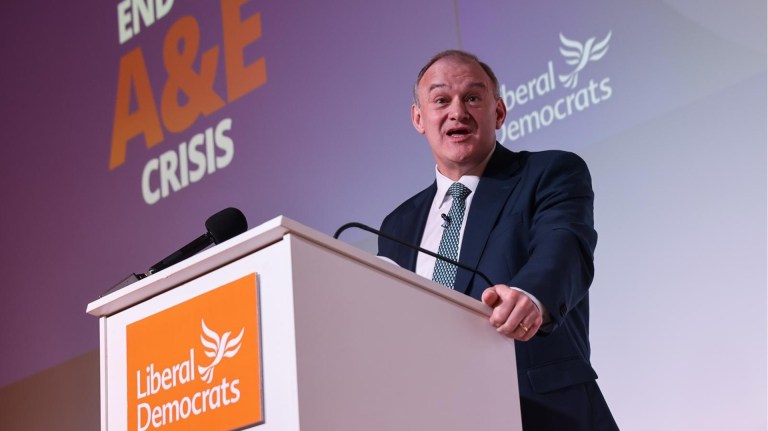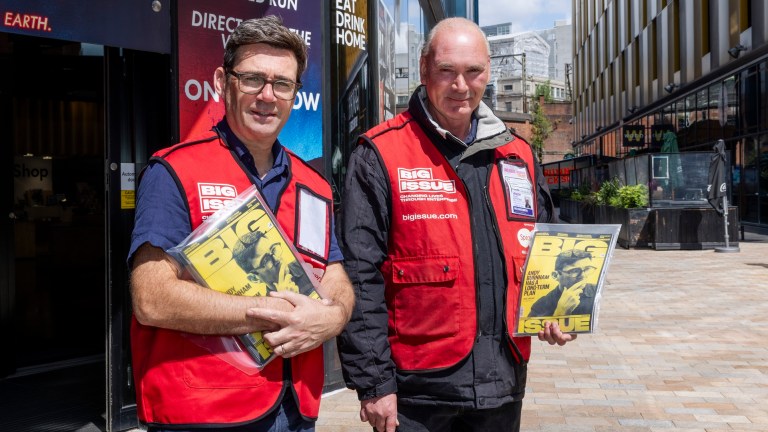“I don’t know whether that trust can ever be regained unless there is urgent action to reverse the winter fuel cut and halt the cruel cuts to the support disabled people receive. People voted last year for a Labour government and not for the continuation of the austerity inflicted on our society by the Conservatives. My message to Labour’s leaders is: ‘Wake up before it’s too late.’”
Steven Fielding, professor of political history at the University of Nottingham and a Labour Party member, suggested that reversing the winter fuel payment would have to be part of a “wider reset” and the government would have to admit it had “made some mistakes” to restore trust.
But Fielding argued that Labour would have to be “careful” and that big changes to policy would have to come later in the year, as part of a broader “recalibration”, so as not to look like a direct response to Reform’s wins in the local election.
There will be bigger plans for spending announced later this year, in Rachel Reeves’ spending review in June and then her autumn budget, during which the government could announce bigger plans. Experts are already anticipating tax rises because of global “uncertainty” and Donald Trump.
Fielding argued that “it won’t be good enough simply to reverse the cuts” and that those responsible need to be “symbolically sacrificed by Starmer” in order to win back voters’ trust – perhaps Reeves, who is seen as the “architect of the fiscal rules”, although Fielding does not believe that this is something that will happen.
“I think they really do have to present themselves in a much better way, and that might mean dropping the pilot in terms of Rachel Reeves,” he said. “I’m a member of the Labour Party and I went canvassing in Preston a few weeks ago, and I met a pensioner, who was quite pleasant, but she said: ‘That Rachel Reeves is evil.’ And it was all because of the winter fuel payment.”
Advertising helps fund Big Issue’s mission to end poverty
Daniel Clegg, professor of social policy at the University of Edinburgh, said: “I suppose the risk for Labour is that reversing the cut to winter fuel allowance wouldn’t placate those who were angry with them for making it, while at the same time making the party leadership look weak.
“Older voters who would benefit most immediately from a reversal of this cut are also less likely to have voted for Labour in the last general election.”
Fewer than one in three people aged 60 to 69, and just one in five over 70s, voted for Labour in the general election, according to YouGov research. The latest polling shows that a projected 12% of people over 65 would currently vote Labour if there was another election. By comparison, a third would vote Conservative and another third would vote Reform.
Even if it was to reverse its decision over the winter fuel payment, Labour would be unlikely to secure pensioners’ trust. And Clegg said that while some younger voters may have been “upset by the cut to the winter fuel allowance for reasons of principle, and might be less unhappy if it was reversed”, ultimately the “electoral pay-off for the government of a U-turn on this measure is not obvious”.
However, Clegg added, the “calculation could be a bit different” if the government were to reverse its upcoming cuts to disability benefits – as this will impact people across the age distribution and a larger part of Labour’s electoral coalition.
Ayla Ozmen, director of policy and campaigns at anti-poverty charity Z2K, said that while it would be “welcome news for pensioners” if the government were to review the winter fuel payment cut, “the benefits will be limited if it continues to press ahead with plans to cut disability benefits”.
Advertising helps fund Big Issue’s mission to end poverty
Older disabled people face losing up to 60% of their income under the proposals, according to Z2K, and the government’s own estimates suggest 250,000 people will be pushed into poverty.
“Despite government rhetoric suggesting that the plans target young people able to work, the planned cuts will hit older working-age people hardest – many of whom have no prospect of returning to work,” Ozmen claimed. “The effects could be disastrous for both people and the economy. The government must abandon these rushed and short-sighted plans.”
Lucy Bannister, head of policy and influencing at Turn2Us, agreed that as well as reversing the winter fuel payment cuts, Labour must “drop the nonsensical plans to cut disability benefits”, which she claimed will “simply cause more hardship and won’t support anyone into employment”.
The government disagrees – it has set a target for an 80% employment rate among working-age people and has announced plans for the “biggest reforms to employment support for a generation”.
A Department for Work and Pensions spokesperson said: “We have set out a sweeping package of reforms to health and disability benefits that genuinely supports people back into work and lifts people out of poverty, while putting the welfare system on a more sustainable footing so that the safety net is always there to protect those who need it most.
“Our £1bn employment support package will unlock work as part of our plan for change, alongside increasing the living wage, boosting benefits, and introducing a fair repayment rate to help more than a million low-income households on universal credit.”
Advertising helps fund Big Issue’s mission to end poverty
It is not unusual for governments to decide policies, including welfare policies, based on voter opinion – in fact, it is a “core principle of representative democracy”, according to Clegg. But the professor of social policy said that it has become “more difficult” for governments to balance being “responsive” to public opinion as well as being “responsible” for the state of the nation.
“For tax and benefit policies there is some expectation that these should only change slowly and incrementally, as they are crucial for financial planning by households,” Clegg added.
“These policies probably get buffeted by the winds of public opinion more in the UK than other European countries, where they are often somewhat insulated from electoral politics by decision-making procedures that involve, for example, trade unions and business associations, who have other priorities than short term electoral popularity.”
For the charities that support pensioners, the decision to restore the winter fuel payment should not be about rebuilding voters’ trust, it should be about doing what is right.
Joanna Elson, chief executive at Independent Age, said: “Last winter was extremely tough for people in later life in financial hardship who lost the winter fuel payment. Many people in this situation called our helpline and told us that they skipped meals or didn’t heat their house at all, because they couldn’t afford it.”
Independent Age is calling on the government to “urgently review” the eligibility criteria for the winter fuel payment, perhaps expanding the criteria to other income-related benefits and not just pension credit.
Advertising helps fund Big Issue’s mission to end poverty
Age UK also suggests that the government widen eligibility for the winter fuel payment so that it is not only paid to those in receipt of pension credit, as well as broadening the warm home discount so more pensioners can benefit from that too.
Caroline Abrahams, charity director at Age UK, said: “The decision to slash eligibility for winter fuel payment last July caused huge anxiety and distress among our older population in the winter just past, some of whom were so worried about their fuel bills that they chose to keep their heating off, even when it was freezing.
“Being chronically cold is a health risk for older people, especially if they have underlying health conditions, so this was potentially disastrous for them and also piled extra pressure on the NHS. We have to avoid a repeat of a similar situation next winter and it’s the government’s responsibility to bring forward policy proposals as soon as possible.”
Do you have a story to tell or opinions to share about this? Get in touch and tell us more. Big Issue exists to give homeless and marginalised people the opportunity to earn an income. To support our work buy a copy of the magazine or get the app from the App Store or Google Play.






